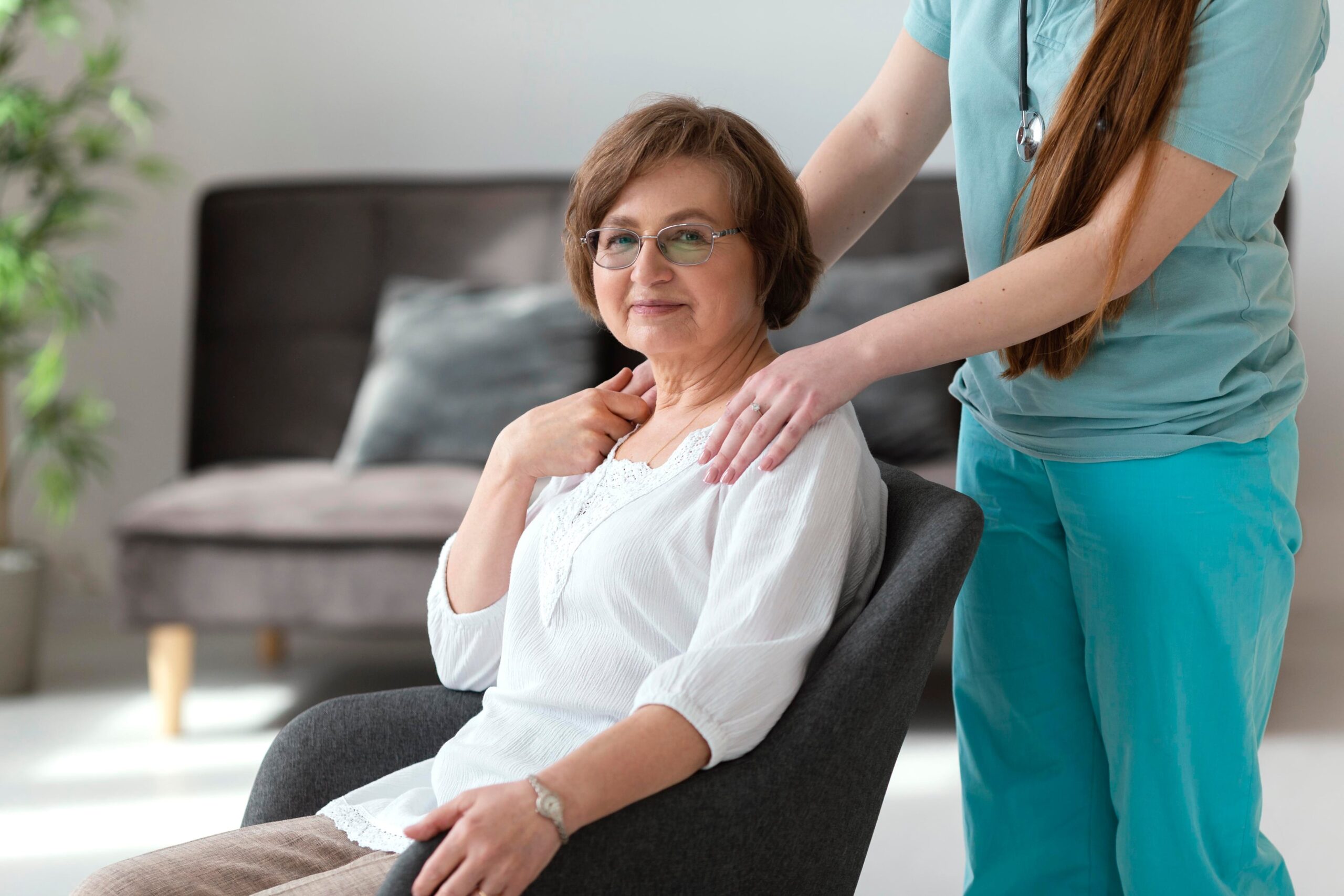Nurturing Senior Mental Health Through In-Home Care: A Guide for Families
As our population ages, the importance of senior mental health care has never been more critical. While we often focus on physical well-being, mental health is an essential aspect of overall health, especially in later life.
The good news is that in-home care and personal assistance can play a significant role in maintaining and enhancing mental health for seniors, ensuring they lead happier, more fulfilling lives.
Understanding Mental Health Challenges in the Elderly
Aging presents a unique set of challenges that can negatively impact mental health. Common issues include:
- Depression: Many older adults experience depression due to loneliness, the loss of loved ones, or declining health. Although there are some studies on elderly depression, loneliness and ageism are two factors that need more research.
- Anxiety: Worrying about health issues, loss of independence, or financial concerns can contribute to anxiety in seniors.
- Cognitive Decline: Dementia, Alzheimer’s disease, and other forms of cognitive decline are prevalent in older populations, affecting memory, problem-solving, and emotional regulation.
- Grief and Loss: The death of friends, spouses, and other close companions can lead to profound grief, which, if not managed, may develop into more serious mental health conditions.
While these challenges are common, they don’t have to define the aging experience. With the right support, elderly individuals can manage these issues and maintain a high quality of life.
The Role of In-Home Care in Supporting Senior Mental Health
In-home care is not just about physical assistance; it can also provide a supportive environment for addressing mental health needs. Personal assistants and caregivers play a crucial role in identifying and managing mental health issues among the elderly.
- Combating Social Isolation One of the biggest mental health risks for the elderly is social isolation. As mobility decreases and friends and family members pass away or move, seniors often find themselves alone for long periods. In-home caregivers provide companionship, which is essential for mental well-being. Even a simple conversation over a cup of tea can brighten a senior’s day and prevent feelings of loneliness.
- Providing Emotional Support A personal assistant can offer more than just physical help—they can also provide emotional support. Caregivers are often trained to recognize the signs of depression, anxiety, and other mental health conditions. By building a trusting relationship, caregivers can offer a safe space for seniors to express their emotions and seek help when needed.
- Encouraging Cognitive Engagement Mental stimulation is vital for slowing cognitive decline. In-home caregivers can engage seniors in activities that challenge the mind, such as puzzles, games, reading, or memory exercises. These activities help keep the brain active, reducing the risk of conditions like dementia.
- Managing Stress and Anxiety Aging can bring many stressors, from health concerns to financial worries. Personal assistants can help seniors manage these stressors by providing a structured, supportive environment. Whether it’s assisting with appointments, managing medication, or simply offering reassurance, caregivers help reduce the burden of anxiety.
Staying on Top of Mental Health for Your Elderly Loved Ones
Monitoring behavioral changes is key when helping your loved ones through the aging process. Because personal assistants spend a significant amount of time with seniors, they are often the first to notice changes in mood, behavior, or cognitive abilities. Early detection of mental health issues is crucial for effective treatment.
A professional caregiver can alert family members or healthcare providers if they observe signs of depression, anxiety, or cognitive decline, allowing for timely intervention.
Mental Health Tips for Seniors
While professional care is essential, there are additional ways to nurture mental health in elderly individuals receiving in-home care:
- Stay Active: Physical activity is a natural mood booster. Encouraging gentle exercises such as walking, stretching, or yoga can enhance mental well-being.
- Engage in Hobbies: Seniors should be encouraged to pursue hobbies and activities they enjoy. Whether it’s gardening, painting, knitting, or playing music, hobbies provide a sense of purpose and joy.
- Maintain Social Connections: Family members should make an effort to visit regularly or schedule video calls. Social interaction with loved ones has a profound impact on mental health.
- Practice Mindfulness and Relaxation: Techniques such as meditation, deep breathing exercises, or even simple moments of mindfulness can help seniors manage stress and anxiety.
- Balanced Nutrition: A healthy diet supports both physical and mental well-being. Caregivers can ensure that seniors are eating nutritious, balanced meals that support brain health.
- Increase Green Space: Studies show that an increase in green spaces—open spaces covered with vegetation—improve senior mental health significantly.
When to Seek Professional Help
While in-home care offers significant senior mental health benefits, there may come a time when professional mental health services are needed. Families should be aware of the signs that a senior’s mental health requires additional support:
- Persistent sadness or withdrawal
- Loss of interest in previously enjoyed activities
- Increased confusion or memory loss
- Drastic changes in appetite or sleep patterns
- Feelings of hopelessness or thoughts of suicide
If any of these signs are present, it’s important to seek the guidance of a mental health professional. Therapy, counseling, or medications may be necessary to help manage these conditions.
Get the Help You Need Today
In-home care provides a holistic approach to elderly health, addressing both physical and mental well-being. By offering companionship, emotional support, and cognitive engagement, personal assistants play a vital role in nurturing the mental health of seniors. For families, understanding the importance of mental health in aging—and the ways in-home care can support it—is key to ensuring their loved ones lead happy, fulfilling lives.
As the saying goes, “A healthy mind lives in a healthy body.” By prioritizing mental health alongside physical care, we can ensure our elderly loved ones enjoy their golden years to the fullest. Reach out to a Heavenly Caregiver today to get the assistance you and your loved one needs.
